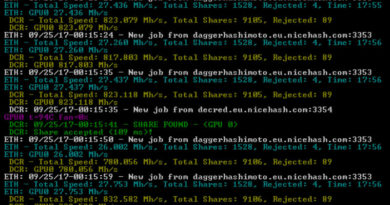Discover Crypto Privacy: How Zero-Knowledge Tech Safeguards Your Data
Over 37 million T-Mobile customers had their personal data exposed in a massive breach. This shows how traditional identity checks leave sensitive information vulnerable. Zero-Knowledge Proofs (ZKPs) offer a solution.
Crypto Privacy and ZK Technology let users prove facts—like age or identity—without sharing raw data. This method shields details during transactions, reducing risks like identity theft. Financial giants and healthcare systems now use ZKPs to balance compliance with privacy.
They verify customer eligibility without exposing birthdates. Even crypto platforms like Togggle are adopting ZKP advancements to cut data-sharing risks. With ZK rollups like zkSync processing more transactions than Ethereum’s mainnet, the tech’s impact is clear.
Zero-knowledge technology ensures only verified truths are shared, not private details.
Key Takeaways
- Zero-Knowledge Proofs (ZKPs) validate data accuracy without exposing sensitive information.
- Identity breaches, like the T-Mobile leak, drive demand for Crypto Privacy and ZK Technology.
- ZKP systems like zk-SNARKs secure transactions while meeting anti-money laundering rules.
- Platforms using ZK tech, such as Togggle, reduce fraud by sharing only necessary verification details.
- Ethereum’s zkSync leads in transaction volume, showing ZK’s rise in blockchain efficiency.
The Equifax breach exposed 147 million records, but ZKPs could prevent such leaks by proving credentials without data dumps. This article explores how zero-knowledge technology reshapes digital security, from DeFi to healthcare, ensuring privacy stays intact without sacrificing trust.
Understanding the Fundamentals of Zero-Knowledge Technology
Zero-knowledge technology is key to blockchain privacy tools today. It started with a 1985 paper by MIT’s Shafi Goldwasser and Silvio Micali. They showed how to verify information without sharing it.
“The knowledge complexity of interactive proof-systems” demonstrated that proof validity could exist independently of information disclosure.
The Mathematics Behind Zero-Knowledge Proofs
Zero-knowledge proofs use math to check statements without sharing data. It’s like proving you know a secret without telling it. This is done with cryptographic algorithms.
How ZK Technology Evolved in Cryptography
Zero-knowledge tech has grown a lot, with new types like zk-SNARKs, zk-STARKs, and Bulletproofs. Ethereum and Zcash use these to make transactions safer. For example, zk-SNARKs make transactions smaller, and zk-STARKs focus on making things faster.
Key Components of Zero-Knowledge Systems
- Completeness: Valid proofs must convince honest verifiers
- Soundness: Invalid claims cannot deceive verifiers
- Zero-knowledge property: No information leaks beyond proof validity
These rules keep things private while keeping trust. For example, someone can show they have enough money for a transaction without sharing their total. Today’s blockchain privacy tools use these ideas to keep things safe and private online.
The Growing Importance of Privacy in the Cryptocurrency Space
“Privacy is the new currency in the digital age.”
In 2017, the Equifax data breach showed how easy it is to lose personal data. People using cryptocurrencies face similar dangers. Bitcoin and Ethereum, for example, keep all transactions open, making them easy to track.
In Syria, people’s lives were at risk because of transaction tracking. This shows how critical privacy is.
Traditional blockchains focus on being open, not private. This openness lets anyone see who’s sending money to whom. It’s a big risk for those who want to keep their financial lives private.
As more people use cryptocurrencies, the danger of data breaches grows. These breaches can target not just money but also personal habits.
| Challenge | ZK Technology Solution |
|---|---|
| Public transaction visibility | Zero-knowledge proofs hide sender/receiver details |
| Regulatory compliance hurdles | ZK proofs validate transactions without exposing data |
| Scalability limits | ZK rollups process 10,000+ txns/second securely |
Businesses need cryptocurrency privacy solutions to keep their secrets safe. Activists use Crypto Privacy and ZK Technology to avoid trouble. Even governments are starting to see the value in keeping some things private.
As blockchain technology gets better, so does the need for privacy. ZK-based systems promise safe, private transactions. They’re key for the future of cryptocurrencies.
Crypto Privacy and ZK (Zero-Knowledge) Technology: A Perfect Match

ZKProof technology has dramatically transformed the digital privacy and security landscapes. It introduces a novel method for sharing and verify sensitive information without compromising personal data.
Traditional blockchains like Bitcoin and Ethereum expose transaction details to the public, leaving users vulnerable to tracking. While pseudonyms shield identities, transaction patterns and wallet balances often leak sensitive information. In February 2024, the $1.5 billion Bybit hack highlighted risks when public ledgers reveal wallet activity patterns.
Why Traditional Blockchains Fall Short on Privacy
Public ledgers track every transaction, enabling third parties to analyze spending habits. Even “private” addresses reuse can link identities over time. This transparency clashes with user expectations for financial privacy.
How ZK Proofs Transform Blockchain Confidentiality
Zero-knowledge proofs verify transactions without revealing underlying data. For example: Zcash uses zk-SNARKs to confirm valid transfers without exposing sender, receiver, or amount. Each verification round reduces fraud chances exponentially: repeating Peggy’s proof 20 times lowers cheating odds to 1 in 1,048,576. Zk-STARKs improve security further by eliminating trusted setups, making attacks nearly impossible.
- ZK proofs verify transactions with 0.00000095% chance of fraud after 20 rounds
- ZK-Rollups bundle 1,000+ txs into one proof, cutting fees by 90%
- Zk-STARKs remove single points of failure in setup phases
Real-World Applications in Today’s Crypto Ecosystem
| Project | Technology | Use Case |
|---|---|---|
| Zcash | zk-SNARKs | Private transactions |
| ZK-Rollups | ZK proofs | Scalability + privacy |
| Quantum-Resistant ZKPs | ZK algorithms | Future-proof encryption |
Regulatory compliance now uses ZK proofs to verify AML/KYC checks without sharing personal data. The National Institute of Standards and Technology (NIST) aims to finalize ZK standards by 2025, accelerating adoption. These advancements make privacy-enhancing technology a cornerstone of next-gen blockchain systems.
Popular Privacy-Focused Cryptocurrencies Using ZK Technology
Privacy-focused cryptocurrencies are leading the way with zero-knowledge (ZK) tech. They use advanced math to keep transactions secret while keeping the network safe. Despite challenges from regulators, they’re setting new benchmarks for digital security.
ZKPs have been used by blockchains such as Zcash to allow users to create privacy-preserving transactions that keep the monetary amount, sender, and receiver addresses private.
Zcash and Its Innovative zk-SNARK Implementation
Zcash was launched in 2016, building on Bitcoin’s code. It offers private transactions using zk-SNARKs. Users can pick between public or private transactions, with private ones hiding who sent and received the money. Though faster than Bitcoin, it needs more power to keep transactions private.
Monero’s Approach to Transaction Privacy
Monero, launched in 2014, makes all transactions private by default. It uses Ring signatures and stealth addresses to hide who’s sending and receiving money. Unlike Zcash, Monero keeps all transactions private, making it the most secure choice.
Newer Projects Advancing ZK Privacy Solutions
New projects like Mina Protocol and Aztec Network are pushing ZK tech forward. Mina’s small blockchain uses zk-SNARKs for fast, private transactions. Aztec Network adds privacy to Ethereum DeFi, and StarkNet makes smart contracts private and fast. But, these need tech skills, which limits their use.
| Coin | Privacy Tech | Launch Year | Key Features |
|---|---|---|---|
| Zcash | zk-SNARKs | 2016 | Optional private txs; faster confirmations than Bitcoin |
| Monero | Ring signatures/stealth addresses | 2014 | Mandatory privacy; untraceable by default |
| Mina Protocol | zk-SNARKs | 2021 | 22KB blockchain size; scalable privacy |
ZK Proof Algorithms: Comparing Efficiency and Security
Choosing the right ZK proof algorithm is key. It’s about finding the right mix of proof size, verification speed, and security. These algorithms are vital for privacy and making transactions scalable. Let’s look at the top choices:
| Algorithm | Proof Size | Verification Time | Trusted Setup | Quantum Resistance | Use Cases |
|---|---|---|---|---|---|
| zk-SNARKs | Small (100s of bytes) | Fast (seconds) | Required | At risk | Coin mixing, identity verification |
| zk-STARKs | Larger (kilobytes) | Faster verification | None | Secure | DeFi, voting systems |
| Bulletproofs | Medium | Quick | No | At risk | Crypto wallets, payment channels |
| PLONK | Small | Fast | No | At risk | Layer-2 scaling, cross-chain bridges |
Trusted setup is a big deal: zk-SNARKs need a one-time trusted process, while zk-STARKs don’t. Quantum resistance is also important—zk-STARKs are the only ones safe from quantum attacks. Developers choose based on these factors when working with sensitive data.
- zk-SNARKs: Best for privacy-focused currencies like Zcash
- zk-STARKs: Preferred in voting platforms needing transparency
- Bulletproofs: Optimized for mobile and IoT devices
- PLONK: Flexible for multi-chain ecosystems
New protocols like Ethereum’s ZK Rollups use these algorithms to balance privacy and speed. Picking the right ZK proof algorithm means matching tech specs with real-world needs.
How Zero-Knowledge Rollups Are Revolutionizing Blockchain Scalability

Zero-knowledge rollups are a game-changer for blockchain. They mix privacy with speed, tackling blockchain’s biggest hurdles. By combining thousands of transactions into one proof, they make Ethereum’s 30 TPS look slow. Now, they can match Visa’s speed.
These blockchain privacy tools also cut fees by 90%. And they do it all while keeping user data private.
The Dual Benefits of Privacy and Transaction Speed
ZK rollups shrink transactions into tiny proofs. This makes data smaller, lowering costs and keeping things private. For instance, they let Ethereum handle over 1,000 transactions per second. That’s way faster than Bitcoin’s 7 TPS.
But here’s the best part: only the fact that a transaction is valid is shared. The details stay hidden.
Leading ZK Rollup Projects in the Ethereum Ecosystem
- zkSync Era: Uses zk-SNARKs for instant transactions and private swaps
- StarkNet: Processes 9,000+ TPS with Cairo programming language
- Polygon zkEVM: Matches Ethereum’s security with 20,000+ TPS possible
Comparing ZK Rollups to Other Scaling Solutions
| Solution | Security | Throughput | Fees | Privacy |
|---|---|---|---|---|
| ZK Rollups | Ethereum-grade | 4,000–20,000 TPS | 90% cheaper | Confidential by default |
| Optimistic Rollups | 7-day challenge period | 1,000 TPS | Lower (but delays) | No privacy |
| Sidechains | Varies by chain | High (chain-dependent) | Lower | Optional |
ZK rollups are leading the way in privacy and speed. But they face challenges like proof generation latency. Yet, big names like DeFi apps are already using them.
As Ethereum 2.0 upgrades get closer, ZK rollups are ready to take blockchain to the next level. They promise secure, private use for everyone.
The Trade-offs Between Privacy and Regulatory Compliance
As cryptocurrency privacy solutions become more popular, regulators worldwide face a big challenge. They need to balance user privacy with rules against money laundering and knowing who your customers are. Platforms like Zcash and Monero use crypto anonymity features like zk-SNARKs to hide transaction details. But, this makes it hard to stop illegal activities, like what happened with Tornado Cash in 2023.
“Zero-trust frameworks assume every user or device could pose a risk, demanding rigorous verification without compromising privacy.”
Now, new solutions like zkFi offer a way to find a balance. They use a multi-tier system with attribute-based encryption (ABE). This lets auditors see transaction data only when it’s needed. This is different from today’s systems, where 60% of small businesses fail after a data breach, according to IBM’s 2023 report.
| Challenge | Proposed Solution |
|---|---|
| AML enforcement | Selective de-anonymization triggers for flagged transactions |
| Centralization risks | Decentralized ABE hierarchies with role-based access |
| Transaction transparency | Zk-STARKs for verifiable proofs without exposing data |
Regulatory frameworks need to keep up with new tech like zk-proof-based protocols. For example, Zcash’s Sapling upgrade let auditors check transactions without seeing everything. At the same time, zkFi’s deposit limits and gas-optimized contracts try to make privacy and compliance work together, even though it costs $4.45 million on average to fix a breach.
We need to work together to make systems where privacy and accountability can both exist. This means finding ways for crypto anonymity features to work with traceability, so no one’s security or rights are ignored.
Implementing Privacy-Enhancing Technology in Your Crypto Portfolio
Keeping your crypto safe means using privacy-enhancing technology and blockchain privacy tools. Look at how Monero and Zcash protect transactions. They use proven methods to keep your data safe.
“ZKON enhances data authenticity and security for Oracle Service providers using zkProofs, allowing proof of transaction validity without exposing sensitive details.”
Essential Tools for Transaction Privacy
Here are some key tools:
- Monero Wallets: They use ring signatures and stealth addresses to hide who sent and received the money.
- Zcash Shielded Transactions: These hide how much money was sent and who sent it using zk-SNARKs.
- ZK Rollups: They combine fast transactions with privacy using zero-knowledge proofs, like Polygon’s zkEVM.
| Tool | Privacy Features | Use Case |
|---|---|---|
| Monero | RingCT + Stealth Addresses | Private retail purchases |
| Zcash | Optional Shielded TXs | Corporate payments requiring confidentiality |
| ZK Rollups | Layer2 Privacy Layers | High-volume transactions on Ethereum |
Best Practices for Secure Usage
Follow these steps for better privacy:
- Store your shielded assets in hardware wallets.
- Turn on privacy features like Zcash’s Sapling protocol for all transactions.
- Keep your software up to date to fix security holes.
Avoid These Privacy Pitfalls
Don’t make these mistakes:
- Don’t reuse address patterns that can be traced.
- Make sure to use Monero’s default privacy features.
- Don’t ignore blockchain explorers that show transaction details.
Using blockchain privacy tools and good habits keeps your crypto safe. Start with a privacy-focused wallet. Then, add more advanced tools as you learn.
The Future Landscape of Blockchain Privacy Tools

“Zero-knowledge proofs are incredibly valuable as they open doors to various innovative applications that wouldn’t be feasible without them.”
Blockchain privacy tools are set for big changes with ZK technology’s growth. Researchers are working to make these tools smaller and faster. This will make Crypto Privacy and ZK Technology easier to use.
They’re also creating systems that will keep data safe from future threats. This means our data will stay secure for a long time.
- Recursive ZK proofs could nest multiple transactions into single validations, boosting efficiency.
- Decentralized identity systems may integrate ZK tech to verify credentials without exposing personal data.
- Healthcare and finance could adopt privacy tools to share encrypted data securely while complying with regulations.
But, there are challenges ahead. Using advanced systems like zk-SNARKs and MPC protocols is expensive. Yet, blockchain privacy tools could soon be common in apps. This is because networks are getting better at working together.
Companies like Zcash are already using zk-SNARKs. Future versions might make things even easier.
Experts think we’ll see a mix of privacy and rules soon. Users might need to learn new things to keep up. As ZK tech spreads, our digital dealings could become both private and efficient. This could change how we do business online worldwide.
Addressing Misconceptions About Crypto Anonymity Features
Crypto anonymity features and privacy-focused cryptocurrencies often face misunderstandings. Let’s clarify key points and correct common myths.
“Privacy-focused cryptocurrencies require careful balance between user rights and regulatory obligations.” – Chainalysis Report, 2023
Privacy vs. Anonymity: Understanding the Distinction
Privacy-focused cryptocurrencies like Monero and Zcash use tech to hide transaction details. But anonymity means no link to a user’s identity. Bitcoin’s public ledger shows privacy but not anonymity—every transaction is traceable to a pseudonym.
| Cryptocurrency | Privacy Tech | Anonymity Level | Regulatory Status |
|---|---|---|---|
| Monero | Ring signatures/stealth addresses | High | Banned in Dubai |
| Zcash | zk-SNARKs (opt-in) | Medium | Restricted listings |
| Dash | PrivateSend mixing | Low | Delisted by major exchanges |
Debunking Common Myths About Privacy Coins
- Myth: Privacy coins are used only for crime.
- Fact: Over 90% of crypto crimes use transparent coins like Bitcoin, per Chainalysis (2023).
- Myth: Privacy tech makes transactions untraceable.
- Fact: Silk Road’s founder was caught via blockchain analysis despite crypto anonymity features.
- Myth: Privacy coins resist all regulations.
- Fact: FATF guidelines now require exchanges to monitor privacy coin transactions.
Privacy-focused cryptocurrencies aim to protect user data, but no system offers absolute anonymity. Regulatory compliance and user education remain critical to their future.
Real-World Impact: How ZK Technology Protects Users in Vulnerable Situations
Privacy technology is protecting people all over the world. In places with tight financial rules, Zcash and Monero let users send money secretly. These tools are lifesavers for activists, journalists, and dissidents under watch.
In 2022, over 1.1 million Americans were victims of identity theft, losing $43 billion. Zero-knowledge rollups lower fraud risks by keeping transaction details hidden. For instance, ZK-STARKs help companies check supply chain data without sharing secrets. ZKON uses IoT sensors and zkProofs to track grain shipments safely.
| Scenario | Technology | Impact |
|---|---|---|
| Activist Funding | Monero | Donors stay hidden while support reaches at-risk groups. |
| Corporate Compliance | ZK-STARKs | Companies show they follow rules without sharing internal data. |
| Secure Voting | zk-SNARKs | Votes are counted without revealing who voted. |
Journalists in strict regimes use Zcash to pay sources without showing transactions. NGOs use private crypto for projects blocked by governments. ZUUS AI’s ZKP systems let traders check portfolios without showing strategies. These tools also help private donations to banned charities, avoiding bank restrictions.
Zero-knowledge rollups reduce blockchain data by 90%, making transactions faster and private. For millions, this tech is more than innovation—it’s a way to survive. Privacy is not a luxury but a defense against oppression and fraud.
Conclusion: Embracing Privacy as a Fundamental Right in the Digital Asset Era
Crypto Privacy and ZK Technology have changed how we handle digital assets. Zero-knowledge proofs make transactions safe without sharing personal info. This solves problems in old systems.
Projects like Zcash and Ethereum’s ZK rollups show how useful this tech is. They keep user data safe and help more people use digital assets. This is key to avoiding big hacks like the 2017 Equifax breach.
But, there are hurdles to overcome. Rules and tech issues like making things faster and easier to use need teamwork. Yet, ZKPs are getting better, like zk-STARKs and Bulletproofs.
Mopher’s free trading platform uses ZK tech to boost privacy. This shows how ZK can make a difference in real life.
Privacy is more than just a tech feature; it’s a basic right in the digital world. As blockchain grows, focusing on ZK solutions is vital. It helps keep data safe and encourages new ideas.
Users need to follow best practices, and tech folks and lawmakers must work together. This balance is key for a secure digital future. Making smart choices now is critical for a safer tomorrow.




